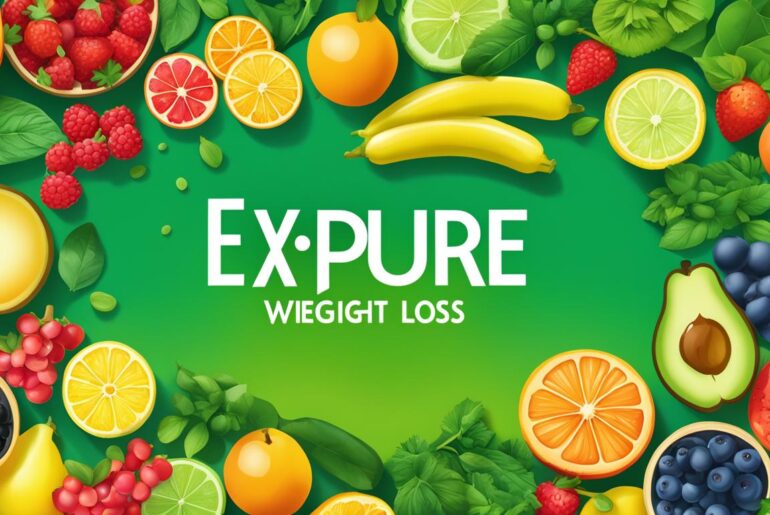Detoxes and cleanses have long been promoted as effective methods for improving health and eliminating toxins from the body. Advocates claim that these approaches can boost energy levels, facilitate weight loss, alleviate constipation, and provide various other health benefits. However, it is essential to understand that our bodies possess natural detoxification mechanisms through organs like the digestive tract, liver, kidneys, and skin. While the ingredients found in detoxes and cleanses may not necessarily be detrimental, there is limited scientific evidence to support their effectiveness. Cleanses often involve the elimination of solid foods or specific food groups, which may offer a temporary respite for the digestive system but are unlikely to yield substantial long-term benefits. It is worth noting that detox diets and cleanses can be low in calories and protein, potentially resulting in decreased energy levels, disruption of metabolism and blood sugar levels, gastrointestinal issues, and nutrient deficiencies.
Key Takeaways:
- Detoxes and cleanses lack scientific evidence to support their effectiveness.
- Our bodies naturally detoxify themselves through organs like the digestive tract, liver, kidneys, and skin.
- Cleanses that eliminate solid foods or specific food groups may only offer temporary relief for the digestive system.
- Detox diets and cleanses can be low in calories, protein, and essential nutrients.
- It is important to consult a healthcare provider before attempting any detox or cleanse program.
Types of Detoxes and Cleanses
Detox diets and cleanses come in various forms, including green tea detox, juice cleanses, and detox water. While these methods are popular, it is important to assess their effectiveness and potential risks.
Green Tea Detox
Green tea is known for its antioxidant properties and potential health benefits. It may aid in weight loss, boost metabolism, and improve brain function. However, consuming excessive amounts of green tea can have negative effects on the stomach, liver, and bones. It is crucial to consume green tea in moderation and consult with a healthcare provider to ensure safe usage.
Juice Cleanses
Juice cleanses involve replacing meals with fruit and vegetable juices for a certain period. Proponents claim that it helps purge toxins from the body and provides a clean slate. While juice cleanses may lead to short-term weight loss and a boost in nutrient intake, they are unlikely to provide sustainable results. These cleanses lack essential protein and fiber, which are necessary for overall health and satiety. It is important to note that there is limited scientific evidence supporting the effectiveness of juice cleanses.
Detox Water
Detox water is a combination of water and various additives, such as lemon, apple cider vinegar, or other herbs. Advocates argue that detox water helps eliminate toxins and aids in weight loss. However, the detoxification benefits of these ingredients are questionable, and drinking excessive amounts of water can lead to electrolyte imbalances. While staying hydrated is important, relying solely on detox water for detoxification purposes is unlikely to provide significant benefits.
It is crucial to note that none of these detoxes and cleanses have substantial scientific research backing their effectiveness. While they may offer temporary benefits or placebo effects, they should be approached with caution and in consultation with a healthcare provider.
| Detox Method | Potential Benefits | Potential Risks |
|---|---|---|
| Green Tea Detox | – Antioxidant properties – Potential weight loss – Improved brain function |
– Negative effects on stomach, liver, and bones when consumed in excess |
| Juice Cleanses | – Short-term weight loss – Increased nutrient intake from fruits and vegetables |
– Lack of essential protein and fiber – Unsustainable results – Limited scientific evidence |
| Detox Water | – Hydration – Potentially increased nutrient intake (depending on additives) |
– Questionable detoxification benefits – Risk of electrolyte imbalances when consuming excessive amounts of water |
Do Detoxes Actually Work?

When it comes to the effectiveness of detoxes and cleanses, the evidence is inconclusive. Unless you have a specific digestive disorder, there is little medical support for the idea that these methods have a significant impact on your digestive tract. While you may experience temporary weight loss by replacing food with water or juices during a cleanse, this weight loss is often just the result of water, carbohydrate stores, and stool being eliminated, and it usually returns once you resume a regular diet.
Cleanses are also not suitable for athletes, as they can deplete the body’s preferred fuel source during exercise. If you do decide to try a cleanse or detox, it is best to limit it to no more than two days during a recovery week with minimal to no exercise. It is important to consider the potential benefits and drawbacks of detoxes and cleanses.
On one hand, these diets can increase your intake of vitamins and minerals and help identify food sensitivities. On the other hand, they tend to be low in calories and protein, which can disrupt your metabolism, blood sugar levels, and gastrointestinal function. It is crucial to weigh these factors when considering the effectiveness and appropriateness of detoxes and cleanses for your individual needs.
Long-Term Weight Loss from Detoxes
While detoxes may lead to short-term weight loss, it is unlikely to be sustainable in the long run. The initial weight loss experienced during a detox is primarily due to the restrictions on calorie intake. However, once you revert to a regular diet, the weight tends to return. Long-term weight loss requires a balanced and sustainable approach that includes regular exercise and a healthy eating plan.
Detoxes and Exercise
Exercise is an important part of a healthy lifestyle, but it may not be compatible with certain detoxes. Cleanses that restrict calorie intake can deplete the body’s preferred fuel sources, making it difficult to sustain energy levels during exercise. If you choose to incorporate exercise into your detox or cleanse routine, it is essential to do so with caution and be mindful of your body’s needs.
References:
- Gunnars, K. (2020). Detox Diets: Cleanses for Weight Loss and Toxin Elimination. Healthline. https://www.healthline.com/nutrition/detox-diets-101
- Harvard Health Publishing. (n.d.). The dubious practice of detox. Harvard Medical School. https://www.health.harvard.edu/staying-healthy/the-dubious-practice-of-detox
Before making any significant changes to your diet or exercise routine, it is always advisable to consult with a healthcare professional.
The Reality of Detox and Cleanse Products
Detox and cleanse products such as supplements, smoothies, diets, and exercises claim to offer remedies for weight loss, increased energy, pain relief, and better sleep. However, there is little scientific research to support these claims.
The body already has natural processes in place for detoxification, and there is no evidence to suggest that you need to flush toxins from your body. Detox supplements and cleanse diets can be potentially harmful, as they are often not regulated, and it is difficult to know the exact ingredients and their effects on the body.
“Detox and cleanse products lack scientific evidence to support their effectiveness and health benefits.”
Stimulant-based colon cleanse products, in particular, can cause damage to the intestines. It is crucial to consult with a healthcare provider before trying any detox or cleanse product.
| Detox and Cleanse Products | Lack of Research | Potential Harm |
|---|---|---|
| Supplements | Scientific evidence is lacking | Risk of unknown ingredients and harmful effects |
| Smoothies | Insufficient research on long-term effectiveness | Possible nutrient deficiencies and unregulated ingredients |
| Diets | Limited scientific evidence on detoxification benefits | Potential disruptions to metabolism and blood sugar levels |
| Exercises | Scant research on detoxification claims | Possible harm from excessive strain on the body |
Safely Detoxing Your Body
The most effective way to detox your body is through regular exercise, eating a healthy diet, and limiting or avoiding alcohol. These lifestyle choices support your body’s natural detoxification processes and overall health. Regular exercise helps strengthen your body and make you feel well. A healthy detox can be achieved by consuming non-processed, whole foods without relying on supplements or extreme calorie restrictions. It is important to note that detox diets with severe food or calorie restrictions may lead to short-term weight loss but are not sustainable or beneficial in the long run. Focusing on overall lifestyle changes and managing chronic conditions such as diabetes, high cholesterol, hypertension, and obesity can also help support liver health and detoxification.
| Safe Detox Methods | Regular Exercise | Healthy Eating | Limiting Alcohol |
|---|---|---|---|
| Eating non-processed, whole foods | Engaging in physical activities like cardio, strength training, and yoga | Consuming a balanced diet with fruits, vegetables, lean proteins, and whole grains | Reducing alcohol intake or avoiding it altogether |
| Staying hydrated by drinking plenty of water | Improving cardiovascular health and blood circulation | Avoiding processed foods, added sugars, and excessive sodium | Allowing the liver to regenerate and function optimally |
| Practicing stress-reducing techniques like meditation and deep breathing | Enhancing metabolism and promoting weight management | Supporting the body’s natural detoxification processes | Preventing liver damage and reducing the risk of related diseases |
Consulting Your Healthcare Provider

Before considering any detox or cleanse diet, it is crucial to consult with your healthcare provider. Detox products are not a substitute for evidence-based medical care, and they may not only be ineffective but also potentially harmful. It is important to have a conversation with your doctor about your overall health goals and any symptoms or problems you may be experiencing. Your healthcare provider can offer guidance on whether a detox or cleanse program would be appropriate for you based on your individual needs and medical history. A doctor’s supervision is particularly important if you have pre-existing health conditions or are considering taking detox supplements.
Ensuring Safety and Education
- Consulting with a healthcare provider ensures that any detox or cleanse program aligns with your individual health needs, reducing the risk of adverse effects.
- Doctors can provide personalized guidance on the safety of detox diets, taking into account your specific medical history and any pre-existing conditions.
- Healthcare providers can educate you on the potential risks and benefits of detox and cleanse methods, empowering you to make informed decisions about your health.
- If you are considering taking detox supplements, a healthcare provider can help you navigate the often confusing and unregulated market, ensuring you choose safe and reliable products.
Remember, detox and cleanse diets are not one-size-fits-all solutions, and what may work for others may not be suitable for you. Consulting with your doctor ensures that you receive personalized advice tailored to your unique needs and circumstances.
| Benefits | Risks |
|---|---|
| – Personalized guidance based on individual health needs | – Potential harm from unregulated detox products |
| – Education on the safety of detox diets | – No scientific evidence supporting detox effectiveness |
| – Assistance in navigating the detox supplement market | – Disruption of metabolism and blood sugar levels |
| – Peace of mind knowing you are receiving evidence-based care | – Gastrointestinal distress and nutrient deficiencies |
Conclusion
After careful analysis, it is clear that detoxes and cleanses lack scientific evidence to substantiate their effectiveness and health benefits. Our bodies are equipped with natural detoxification processes, and maintaining a balanced diet of whole foods is generally sufficient to support overall health. While detox and cleanse diets may result in short-term weight loss, they are unlikely to lead to long-term results. Moreover, these diets often have low calorie and protein content, which can disrupt metabolism, blood sugar levels, and gastrointestinal function.
The key to promoting the body’s natural detoxification processes lies in sustainable lifestyle changes. Regular exercise, healthy eating, and managing chronic conditions are essential in supporting optimal detoxification. Rather than relying on detoxes and cleanses with limited scientific backing, it is advisable to focus on incorporating whole foods, engaging in physical activity, and seeking personalized guidance from healthcare professionals.
Before embarking on any detox or cleanse program, it is important to consult with a healthcare provider who can provide appropriate advice based on individual needs and medical history. Their guidance can help ensure a safe and effective approach to achieving overall well-being and supporting the body’s natural detoxification processes.




